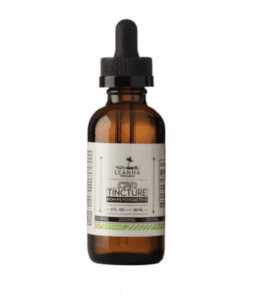Finding ways to reduce stress & anxiety can, for some of us, result in just more anxiety! Or is that just me? Funny how that works, right? Before we start wading through the weeds you’ll have to ask yourself one important question: what is causing you stress?
Finding Ways to Reduce Stress & Anxiety and the Most Common Reasons for it
Stress for people can come from a variety of factors, but some of our causes of stress are more common than others. What are some of the most common reasons someone might experience stress or anxiety you might be wondering? Let’s take a look:
MONEY
WORK
RELATIONSHIPS
DIVORCE
PARENTING
MOVING
LEGAL ISSUES

Believe me, no one is immune to stress or experiencing bouts of anxiety on occasion. Stress is absolutely a normal and natural reaction to major life events, but it is important to confront it so that it does not turn into a more serious issue like chronic anxiety. Major anxiety issues can impact our health, eating habits and may result in major mood problems.
We don’t always realize how much stress impacts our health, eating habits and mood.
It is critical for women especially after a recent study showed that women who experience high levels of stress or depression burn fewer calories than those who do not. YIKES!
12 Ways to De-stress & Reduce Anxiety That Are Practical for Most Lifestyles
When we get worked up our flight or fight mode kicks in and for many of us the last thing on our mind is ways to reduce stress. Stress can alter our hormones and, as it has been pointed out: even slow down our metabolism. Additionally, the stress hormone cortisol can also disrupt and increase hunger, causing you to crave foods high in sugar and fat! These foods, of course, are counterproductive to meeting your health goals.
Unfortunately stress can trigger you to choose more pleasurable foods that aren’t always the best for your health goals.
I am always going to encourage focusing on balanced meals with a consistent routine to also help avoid stress. Being prepared and not going long periods of time without food can significantly help your mental status!

1. Write Down Your Emotions – Journal for 15 Minutes Everyday
Find a zen environment and spend some time focusing on how YOU are feeling, your goals, what happened today, your plans for tomorrow, about some juicy gossip – whatever you feel like! write out how you’re feeling, your goals, or whatever you feel like! Don’t worry about grammar or what exactly you’re writing, just jot it down.
2. Yoga & Meditation
Yoga and meditation provide highly practical techniques and movements to help manage stress before it does lasting damage to our minds and bodies.
3. Listen to Music
Music therapy has been shown to help reduce anxiety and may even help with pain management. Pump the jams before going into work or while getting through daunting errands!
4. Turn Stress or Anxiety into Positive Thoughts
Get excited! Perception matters, and science suggests that a little bit of stress can actually be beneficial. If you have a quick deadline, take it as a positive challenge!
5. Make Exercise a Priority
Exercise reduces levels of the body’s stress hormones, such as adrenaline and cortisol. It also stimulates the production of endorphins, chemicals in the brain that are the body’s natural painkillers and mood elevators. I love foam rolling, using resistance bands and small hand weights at home along with CrossFit!
6. Connect With a Friend – or a Few
Maintaining a deep friendship requires a level of psychological intimacy. Being transparent and open about what’s going on in your life can build relationships.
7. Revamp Your Workspace
Declutter, rearrange, personalize it! Get environmental irritants out! A cluttered environment saps your mental energy and increases anxiety. Diffusers are a great way to boost mood!
8.) Get a Massage
Massage therapy has more recently been used for the treatment of mental and emotional problems, including stress, anxiety, and depression. Also considered a relaxation technique, massage therapy may be able to help reduce tension.
9. Go Unplugged – Disconnect the Electronics
Schedule time to turn it all off and just connect and decompress. Electronics cause over-stimulation when you are already stimulated.
10. Create a Worry List and a Strategy for Confronting Stress
Breathe out anything that was the opposite of awesome with the intention of letting it go.
11. Say Out Loud What’s Bothering You
Call a friend to vent, see a therapist, belt it out loud! Sometimes it helps getting those feelings out into the universe.
12. Sip on Some Tea, Try CBD or Eat a Snack Slowly and Most of All: Practice mindfulness.
Take a minute to enjoy a snack, beverage or address supplement options. Lately I have added CBD to my evening routine. Cbd is cannabidiol, one of the many cannabinoids found in hemp. Unlike THC, CBD is nonpsychotrophic effects (doesn’t get you high). Stuides have shown it can help reduce inflammation, anxiety and provide relief for multiple other conditions. Think about the taste, smell, texture. Refocus your thoughts on being in the moment.

More Resources & Information on Ways to De-stress & Reduce Stress
RELAXATION RESPONSE INDUCES TEMPORAL TRANSCRIPTOME CHANGES IN ENERGY METABOLISM, INSULIN SECRETION & INFLAMMATORY PATHWAYS
HARVARD HEALTH PUBLISHING: WRITING ABOUT EMOTIONS MAY HELP EASE STRESS & TENSION
MUSIC REDUCES STATE ANXIETY SCORES IN PATIENTS UNDERGOING PLEURAL PROCEDURES: A RANDOMIZED CONTROLLED TRIAL.
PLAYING MUSIC FOR HOSPITALIZED PATIENTS ENHANCES MOOD & REDUCES PERCEPTIONS OF PAIN.
CBD Research Articles
[…] Stress Less: Stress increases cortisol, which leads to weight gain, a key risk factor for heart disease. In addition, stress can lead to other unhealthy habits but also anxiety and depression, making it harder to stick to a heart-healthy program. Here are some reducing stress tips! […]
[…] Read my Top 12 Ways to Reduce Stress and Anxiety […]